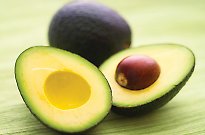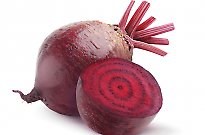
How to tell if you have fatty liver disease

Signs, symptoms & detox tips
A rising number of people are developing fatty liver disease – not from alcohol but from their diet. David Goding tells us more.
What does the liver do?
Your liver cops a belting just so you can have a good time. Perhaps it’s time you did something nice in return. The liver is arguably the busiest organ in the body. It’s also the largest and quite possibly the most misunderstood.
Taking up 12 per cent of the body’s energy in order to perform over 500 tasks, it’s expected to rise to the occasion every time you have a big weekend, go on a saturated fat bender or decide that wine goes well after a few vodkas. It doesn’t, but your liver will be there to pick up the pieces anyway. It always does.
The liver is a tough nut, capable of taking an awful lot of punishment. But it’s not invincible.
An estimated 30 per cent of Australians suffer from some form of liver disease, with fatty liver, viral hepatitis and cirrhosis the main culprits. Poor dietary habits and lifestyle choices are often to blame.
Fortunately, there is much you can do to stack the odds in your favour and ensure a healthy future for your liver. It’ll thank you in the morning.
Getting to know your liver
“The liver is located in the right upper quadrant of the abdomen – if you place your fingers under your rib cage on the right side, you should be able to feel the edge of your liver when you take a deep breath,” says Dr Howard Worman, associate professor of medicine at Columbia University Medical Center and author of The Liver Disorders and Hepatitis Sourcebook.
So now you know where it is, but what does it do?
“Virtually everyone knows that the liver is an organ essential to life, but most people do not really know what it does,” says Dr Worman. “Many will say that the liver plays some role in ‘purifying’ or ‘cleansing’ the blood. Some will know that it is the site of metabolism for many different drugs. Others will know that the liver is involved in the formation of bile.”All of these are true, but it’s only the tip of the iceberg. Your liver is also vital for synthesising carbohydrates, fats and proteins, breaking down and eliminating excess hormones, balancing blood sugar levels, and storing nutrients, including iron, copper and vitamins A, B12, D, E and K.
“The liver is able to repair and regenerate with amazing speed and efficiency,” says Dr Malcolm Clark, Melbourne GP and author of Doctor In The House. “It must, because one of its key functions is to render harmless the toxins and poisons that constantly enter the body. Many liver cells are lost in battle.”
“The liver also processes nutrients absorbed from the bowel, manufactures and distributes cholesterol, builds blood-clotting proteins, and makes the amazing fat ‘detergent’ green bile, as well as lots of other important – albeit smaller – functions.”
How do you know if you have fatty liver disease?
Problems arise when the liver is overwhelmed with a repeated toxic onslaught and is unable to repair itself. The result for many is life-threatening cirrhosis of the liver. The number-one enemy of the liver and greatest cause of cirrhosis is alcohol abuse.
But if you don’t abuse alcohol, your liver is in the clear, right? Not quite.
A rising number of people are developing fatty liver disease – not from alcohol but from their diet.
While it’s normal for the liver to have a certain amount of fat, too much puts you at risk of fatty liver disease, which in turn can lead to cirrhosis. It’s estimated that as many as one in five people in the Western world now suffer from the condition.
“Most people with a fatty liver will not feel well and will find they become increasingly fatigued and overweight, often for no apparent reason,” says Dr Sandra Cabot, author of the groundbreaking books, The Liver Cleansing Diet and Fatty Liver – You Can Reverse It.
The cause is generally a diet high in calories, particularly those derived from fats and refined carbohydrates. Not surprisingly then, you have an increased risk of fatty liver if you are overweight, have diabetes or elevated triglyceride levels.
“Fatty liver is a very serious epidemic because it can affect children, it can lead to obesity and diabetes and it can lead to cirrhosis and liver failure,” says Dr Cabot.
“Fatty liver will probably reduce your life span by many years and will greatly reduce your quality of life."
Should you detox?
A liver detox program or cleanse takes it one step further than just merely avoiding potentially harmful substances.
“The reason why detox diets are so popular is that many people are aware of feeling under par after a period of excess,” says Holford. “This might be after too much sugar, caffeine, alcohol, fried food, overeating, active or passive smoking, pollution or drugs. These are all examples of substances the body has to work hard to detoxify.”A detox usually involves a period of one-to-two weeks whereby you restrict your diet to fresh juices, soups or other basic foods to take the stress off the liver and allow it to shed its toxic load.
“Poor liver function, even of a slight degree, can cause far-reaching and diverse health problems,” says Dr Cabot. “By improving liver function through diet, raw juicing, and the correct liver tonics and minerals, these multiple health problems will be alleviated, or at the very least greatly reduced.”
But not everybody agrees that a detox is necessary or even that they work. Many health experts remain sceptical about the claims made by detox experts, and warn of the dangers of some of the ‘quick fix’ kits that border on starvation.
Ideally, a detox program should be performed under the guidance of your GP or dietitian who has the history to support their success and safety. The last thing you want to do is put your liver under even more duress.
“In the old days of total fasts, where you drank only water, naturopaths used to talk about the ‘healing crisis’, where you felt worse before you felt better,” says Holford. “But often this was really just a crisis.”
“The idea of a liver detox is to support and take the load off the organ by providing the nutrients it needs – not to give it even more work to do!”


